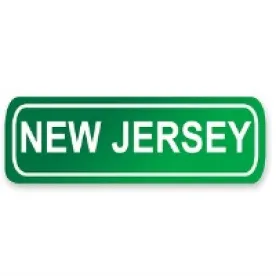The New Jersey Division on Civil Rights (DCR) is the state agency responsible for enforcement of the New Jersey Family Leave Act (NJFLA). The NJFLA provides eligible employees up to 12 weeks of job-protected leave during any 24-month period: (1) to bond with a child within 1 year of the child’s birth or placement for adoption or foster care; (2) to provide care to a family member or one who is the equivalent of a family member who has a serious health condition or has been isolated or quarantined because of suspected exposure to a communicable disease during a state of emergency; or (3) to provide care or treatment for a child if the child’s school or place of care is closed by order of a public official due to an epidemic of a communicable disease (such as COVID-19) or other public health emergency.
The DCR’s current rules enforcing the NJFLA largely predate the legislative changes to the NJFLA already signed into law in 2014, 2019, and 2020. Accordingly, in advance of the original July 30, 2021, expiration of the current rules, the DCR recently proposed the re-adoption of the rules with amendments reflecting the legislative changes to the NJFLA in 2014, 2019, and 2020. (Note: The rules had been scheduled to sunset on July 30, 2021, but were extended 180 days to January 26, 2022, due to the issuance of the proposal notice.) The following is a summary of the proposed regulations with key amendments.
Definition of “Family Leave”
The proposed rules would expand the definition of job-protected “family leave” in New Jersey Administrative Code (N.J.A.C.) 13:14-1.2 to include, in certain circumstances, leave from employment (1) to care for a family member “who has been isolated or quarantined” due to “suspected exposure to a communicable disease,” or (2) to provide care for a child because the child’s school or place of care has been closed “by order of a public official due to an epidemic of a communicable disease or other public health emergency.” This amendment mirrors the April 14, 2020, legislative amendment to the NJFLA.
Definition of “Family Member”
The proposed rules would broaden the definition of “family member” in N.J.A.C. 13:14-1.2 to include an employee’s “child, parent, parent-in-law, sibling, grandparent, grandchild, spouse, domestic partner or partner in a civil union, any other individual related by blood, and any other individual with whom the employee has a close relationship that is equivalent to a family relationship.” The amended rule would reflect the February 19, 2019, amendment to the NJFLA.
Definitions of “Parent” and “Child”
The proposed rules would clarify that the definitions of “parent” and “child” in N.J.A.C. 13:14-1.2 “include any parent-child relationship resulting from a valid written agreement with a gestational carrier,” to also mirror the February 19, 2019, amendment to the NJFLA.
Definition of “Covered Employer”
The proposed rules would expand the definition of “covered employer” in N.J.A.C. 13:14-1.2 to include “employers with 30 or more employees worldwide,” consistent with February 19, 2019, legislative amendment to the NJFLA. Prior to amendment, the NJFLA applied to employers with 50 employees or more worldwide. State and local government agencies of any size would be covered employers, regardless of their number of employees.
Definition of “Closure”
The proposed rules would define “closure of a school or place of care” in N.J.A.C. 13:14-1.2 to clarify that a school or place of care should be considered closed when “[an] order by a public official results in the school or place of care being closed to the child of the employee to in-person instruction or care during specific times of the day or days of the week.” This proposed amendment would not consider the school or place of care closed “when the child of an employee may attend the school or place of care, but the employee chooses to provide in-home care or treatment of the child.”
Definition of “Eligible Employee”
Under the NJFLA, “eligible employee” is defined as “any individual employed by the same employer for 12 months or more, who has worked 1,000 or more base hours during the preceding 12[-]month period.” The proposed rules would modify N.J.A.C. 13:14-1.2 to allow the counting of up to 90 calendar days during which the employee was “laid off or furloughed by an employer due to that employer curtailing operations because of a state of emergency” for purposes of determining eligibility for leave under the NJFLA.
Advance Notice
Under the proposed rules, the advance notice requirement in N.J.A.C. 13:14-1.4 would be reduced from 30 days to 15 days when an employee requests intermittent or reduced schedule leave to care for a family member with a serious health condition, including one caused by an epidemic of a communicable disease, such as COVID-19.
Highest-Paid Employees
The proposed rules would amend N.J.A.C. 13:14-1.9 to be consistent with the April 14, 2020, amendment to the NJFLA, and prohibit an employer, during a state of emergency declared by the governor or a public health authority, from denying family leave to a salaried employee who is among the highest paid five percent of the workforce or among the seven highest paid employees, when that family leave is “for an epidemic of a communicable disease, a known or suspected exposure to a communicable disease, or efforts to prevent spread of a communicable disease.”
Intermittent and Reduced Leave
Under the NJFLA, an employee taking intermittent or reduced schedule leave must “make a reasonable effort to schedule such leave so as not to unduly disrupt the operations of the employer.” The proposed rules would amend N.J.A.C. 13:14-1.5 to create a presumption that an employee’s intermittent or reduced leave to care for a family member who has been diagnosed with a communicable disease, or is suspected of having a communicable disease, “would disrupt unduly the employer’s operations.” Under the proposed rules, “the presumption would apply unless the employee does not come into contact with others while working or can work remotely during the leave.” The DCR would make a determination of undue disruption on a case-by-case basis.
The DCR will be accepting comments regarding the proposed rules until April 30, 2021.




 />i
/>i